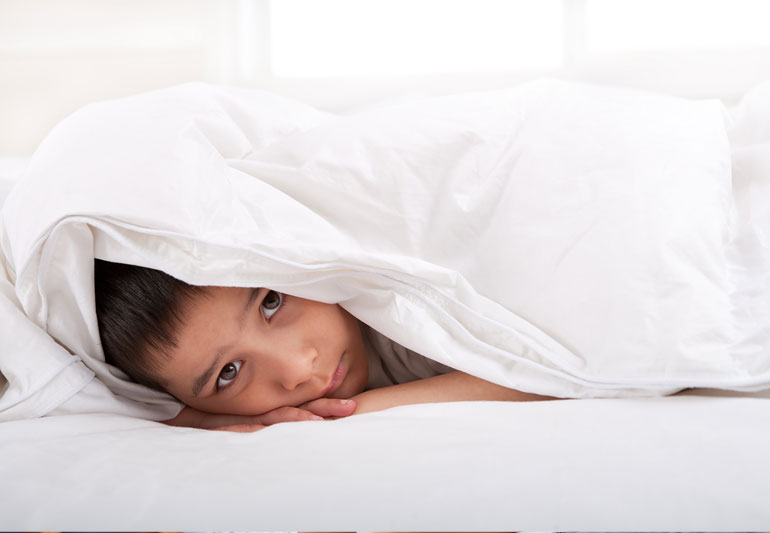
The medical name for not being able to control your pee is enuresis. Sometimes enuresis is also called involuntary urination. Nocturnal enuresis is involuntary urination that happens at night while sleeping, after the age when a person should be able to control his or her bladder. (Involuntary urination that happens during the day is known as diurnal enuresis.)
Most of us think of bedwetting as something that happens with little kids. But this problem affects about one or two out of every 100 teens.
What happens in enuresis? There are two kinds of enuresis
Someone with primary nocturnal enuresis has wet the bed since he or she was a baby. This is the most common type of enuresis.
Secondary enuresis is a condition that develops at least six months — or even several years — after a person has learned to control their bladder.
The bladder is a muscular receptacle, or holding container, for pee (urine). It expands (gets bigger) as pee enters and then contracts (gets smaller) to push the pee out.
In a person with normal bladder control:
Nerves in the bladder wall send a message to the brain when the bladder is full.
- Chamisa under fire over US$120K donation
- Mavhunga puts DeMbare into Chibuku quarterfinals
- Pension funds bet on Cabora Bassa oilfields
- Councils defy govt fire tender directive
Keep Reading
The brain then sends a message back to the bladder to keep it from automatically emptying until the person is ready to go to the bathroom.
But people with nocturnal enuresis have a problem that causes them to pee involuntarily at night.
What causes enuresis? Doctors don’t know the exact cause of nocturnal enuresis. But they think that these things may play a role:
Hormonal problems. A hormone called antidiuretic, or ADH, causes the body to make less pee at night. But some people’s bodies don’t make enough ADH, which means their bodies may make too much urine while they’re sleeping.
Bladder problems. In some people with enuresis, too many muscle spasms can prevent the bladder from holding a normal amount of pee.
Some teens and adults also have relatively small bladders that can’t hold a lot of urine.
Genetics. Teens with enuresis often have a parent who had the same problem at about the same age. Scientists have identified specific genes that cause enuresis.
Sleep problems. Some teens may sleep so deeply that they don’t wake up when they need to pee.
Caffeine. Using caffeine causes a person to pee more.
Medical conditions. Medical conditions that can trigger secondary enuresis include diabetes, urinary tract abnormalities (problems with the structure of a person’s urinary tract), constipation, and urinary tract infections.
Psychological problems. Some experts believe that stress can be linked to enuresis.
Doctors don’t know exactly why, but more than twice as many guys as girls have enuresis.
How is enuresis diagnosed? If you’re having trouble controlling your urine at night, talk to your doctor to learn more about nocturnal enuresis and to rule out the possibility of a medical problem.
The doctor will do an examination, and ask you about any concerns and symptoms you have, your past health, your family’s health, any medicines youre taking, any allergies you may have, and other issues. This is called the medical history. He or she may ask about sleep patterns, bowel habits, and urinary symptoms (such as an urge to pee a lot or pain or burning when you pee). Your doctor may also discuss any stressful situations that could be contributing to the problem.
The initial examination will probably include a urinalysis and urine culture. In these tests, urine is examined for signs of disease. Most of the time in people with nocturnal enuresis, these test results come back completely normal.
How is enuresis treated? Doctors can do several things to treat bedwetting, depending on what’s causing it. If an illness is responsible, which is not very common, it will be treated.
If the history and physical examination do not find a medical problem and the urine tests are negative, several behavioural approaches can be used for treatment:
Manage what you eat and drink before bed. People with nocturnal enuresis can take some basic steps to prevent an overly full bladder, such as decreasing the amount of fluids they drink before going to bed.
You can reduce the chances that you’ll wet the bed by going to the toilet just before bedtime.











